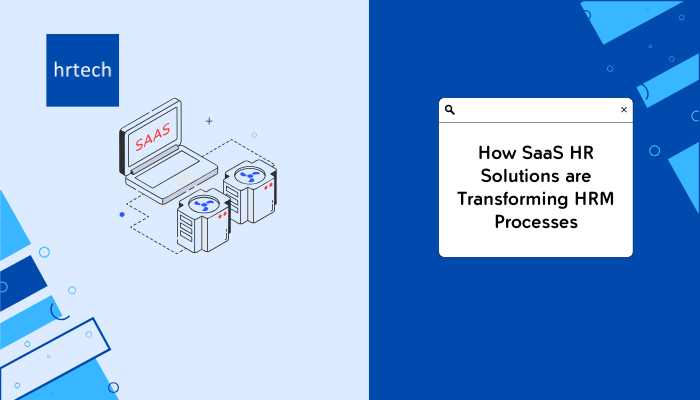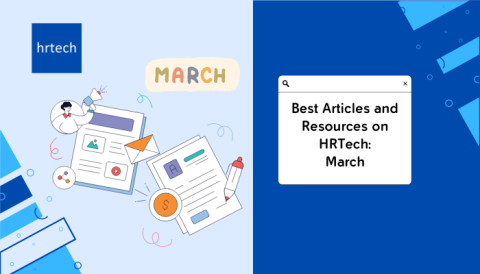SaaS HR solutions are revolutionizing the HRM process by offering a cloud-based approach to managing various HR tasks. In the introduction, providing a brief overview of HRM processes and their significance is essential, emphasizing the need for efficient and streamlined HR management. Additionally, introduce SaaS HR solutions and their increasing popularity, highlighting their role in transforming traditional HR systems.
The HRM process is important for organizational success, encompassing various functions such as personnel tracking, payroll, benefits, recruiting, onboarding, and training. The rising popularity of SaaS HR solutions is evident from their ability to streamline HR tasks, centralize employee data, and automate processes, ultimately enhancing efficiency and fostering employee engagement.
By embracing cloud-based HR solutions, businesses can benefit from cost-effectiveness, scalability, and accessibility. This allows HR teams to focus on strategic tasks rather than IT maintenance.
Understanding SaaS HR Solutions:
Definition and benefits:
SaaS HR solutions, or Human Resources Software as a Service, are cloud-based platforms that provide various HR management functionalities. These solutions offer numerous benefits, including:
Cost-effectiveness: SaaS HR solutions eliminate the need for expensive on-premise software and hardware, reducing overall costs.
Scalability: As businesses grow, SaaS HR solutions can easily accommodate increasing employees and HR tasks.
Accessibility: Cloud-based HR solutions allow employees and HR teams to access important data and perform tasks from anywhere, using various devices.
Automation: SaaS HR solutions automate routine tasks, such as payroll processing and employee onboarding, increasing efficiency and reducing errors.
Data Security: Cloud-based HR systems offer strong security features, protecting sensitive employee data and preventing non-compliance penalties.
Explanation of how SaaS works within the HR context
SaaS HR solutions work by centralizing employee data, automating processes, and providing employee self-service options. Key features of SaaS HR systems include:
Employee database: SaaS HR solutions store and manage employee information, such as personal details, employment history, and performance reviews.
Employee profiles: These platforms allow employees to create and update their profiles, providing a centralized location for employee data.
Employment life cycle transactions: SaaS HR solutions manage various transactions throughout the employee life cycle, including hiring, onboarding, promotions, and terminations.
Payroll management: These systems automate payroll processing, ensuring accurate and timely employee payments.
Employee benefits: SaaS HR solutions facilitate benefits administration, allowing employees to manage their benefits and HR teams to track and report on benefits usage.
Employee self-service portal: These platforms provide employees with a portal to access their personal information, request time off, and perform other HR-related tasks.
By understanding the benefits and features of SaaS HR solutions, businesses can make informed decisions about adopting these platforms to transform their HRM processes.
Transforming HR through Agile Workforce Solutions
How SaaS HR Solutions are Transforming HRM Processes:

Streamlining administrative tasks:
SaaS HR solutions streamline administrative tasks by automating routine processes, such as leave tracking and payroll management. These platforms also offer cloud-based leave tracking, allowing employees to request time off and HR teams to manage leave requests more efficiently. Additionally, self-service portals enable employees to access their personal information, request time off, and perform other HR-related tasks, reducing the workload on HR teams.
Enhancing Recruitment and Onboarding:
SaaS HR solutions improve recruitment and onboarding processes by offering online job posting, applicant tracking, and digital onboarding. These platforms allow businesses to post job openings on various platforms, track applicants, and manage the hiring process more efficiently. Digital onboarding simplifies the onboarding process by providing new hires with essential information, forms, and resources, ensuring a smooth transition into the organization.
Improving Performance Management:
It enhances performance management by providing real-time feedback, data analytics, and performance tracking. These platforms enable HR teams to monitor employee performance, identify areas for improvement, and provide timely feedback to employees, fostering a culture of continuous improvement.
Optimizing Employee Training and Development:
Helps in optimizing employee training and development by offering e-learning modules and automated career path planning. These platforms enable employees to access training materials, complete courses, and track their progress, while HR teams can manage training programs and career development paths more efficiently.
Simplifying Benefits Administration:
simplifies benefits administration by offering digitized benefits selection, enrolment, and management. These platforms allow employees to choose and enroll in benefits, while HR teams can manage benefits administration more efficiently, ensuring compliance with local, state, and federal regulations.
Strengthening Compliance:
SaaS HR solutions strengthen compliance by offering automated compliance modules for local, state, and federal regulations. These platforms help businesses stay compliant with various regulations, reducing the risk of non-compliance penalties and legal costs.
By understanding how SaaS HR solutions transform HRM processes, businesses can leverage these platforms to streamline their HR operations, enhance efficiency, and foster employee engagement.
The Future Of HRM With SaaS Solutions:
The future of HRM with SaaS solutions is bright, with several advancements expected in the coming years. AI and machine learning will play a significant role in automating HR tasks, improving decision-making, and enhancing employee experience. Mobile HR management will enable HR professionals to access employee data and manage HR tasks from anywhere, anytime, using their mobile devices.
Advanced data analytics will provide insights into organizational metrics, enabling HR teams to make data-driven decisions and improve HR processes. Employee self-service (ESS) will empower employees to manage their HR-related tasks, such as leave requests, benefits selection, and performance tracking, reducing the workload on HR teams. These advancements will transform HRM processes, leading to increased efficiency, better employee experience, and improved compliance management.
Conclusion:
SaaS HR solutions are transforming HRM processes by streamlining administrative tasks, enhancing recruitment and onboarding, improving performance management, optimizing employee training and development, simplifying benefits administration, and strengthening compliance. The benefits of SaaS HR solutions include cost-effectiveness, scalability, accessibility, automatic updates, and data security.
The future of HRM with SaaS solutions is bright, with advancements expected in AI. We encourage readers to consider SaaS HR solutions for their own HRM needs, as they can help businesses to streamline processes, enhance efficiency, and foster employee engagement.




